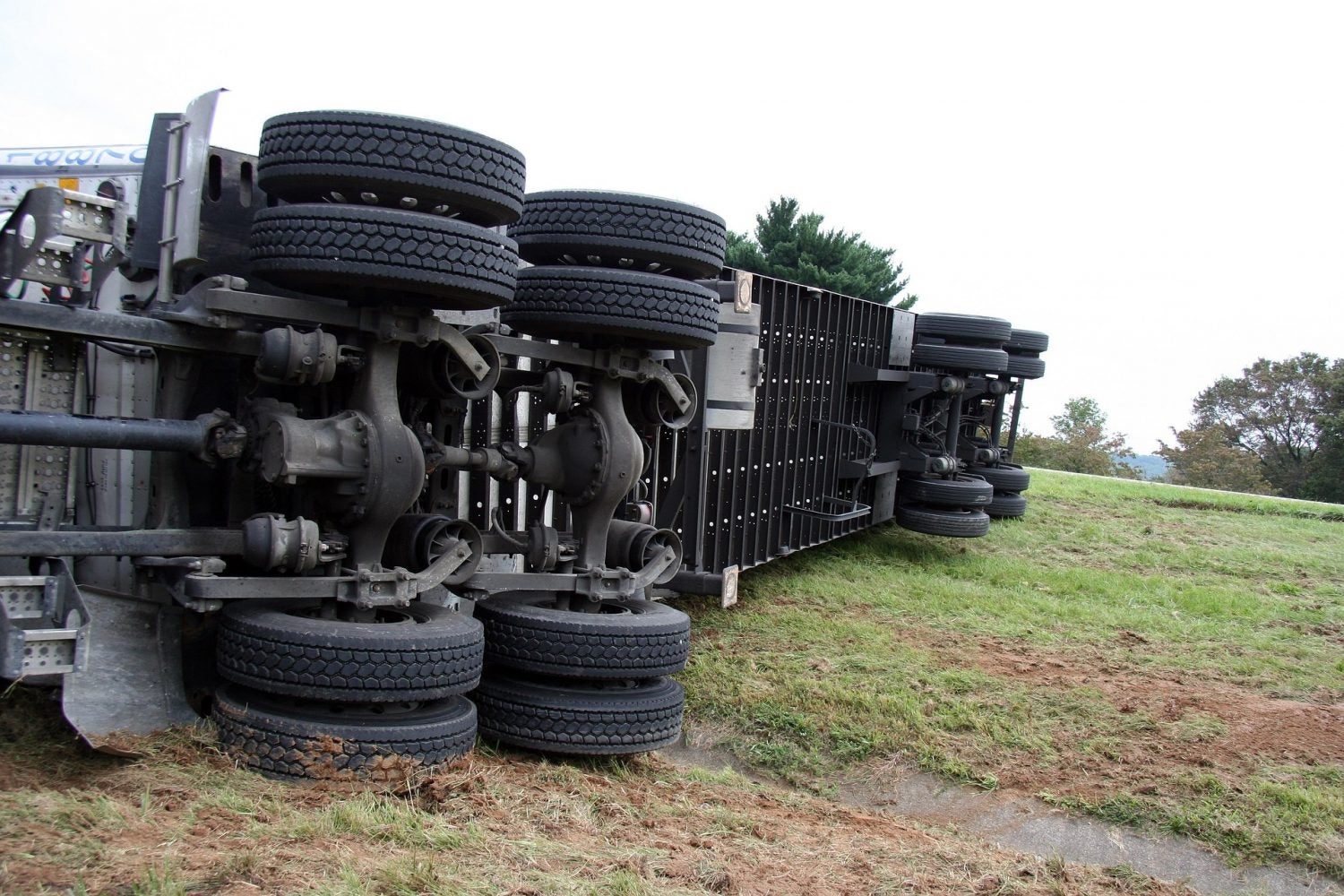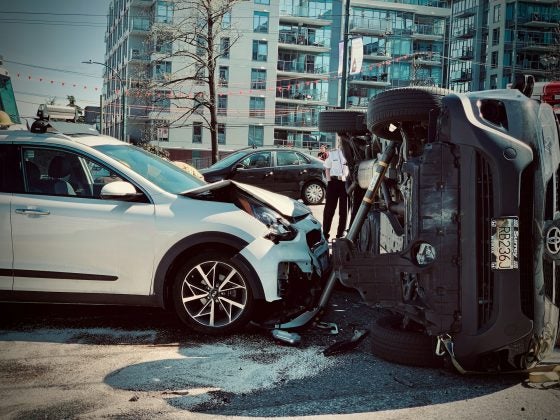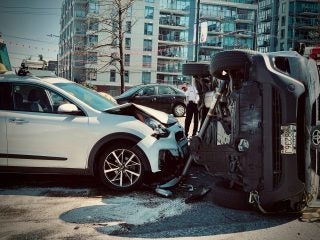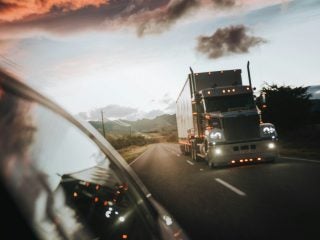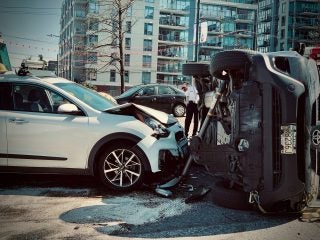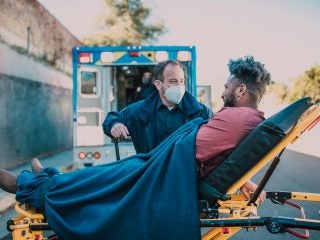As you recover from your injuries, it shouldn’t be surprising if questions about liability crop up in your mind.
Specifically, you may wonder – when can the truck driver themselves face personal liability for my accident-related injuries? What options do I have for holding them financially accountable? And how can an attorney help me navigate this complex process?
Company vs. Personal Liability
When tragic crashes occur, determining liability often becomes contentious. The trucking company usually bears responsibility as the driver’s employer. However, depending on the circumstances, the driver themselves may also be personally liable.
But what exactly constitutes personal liability? In basic terms, it means the individual driver, not the corporation, pays damages. Understanding when and how this happens is key to getting fair compensation.
Acting Within Employment Scope or Not
Trucking companies maintain policies, schedules, vehicle maintenance routines and more that govern their operations. Drivers agreeing to work for them must operate within these procedures. However, sometimes drivers act outside that scope of direction. Their conduct becomes questionable enough that personal liability applies.
For example, maybe the driver showed negligent maintenance that damaged equipment integrity. Or perhaps they drive aggressively and cause a crash despite company prohibitions against speeding. In scenarios like these, blame shifts from employer to employee. The reason is the driver’s personal actions, apart from their work duties, caused the accident.
Conversely, problems like inadequate company vehicle inspection protocols or unrealistic delivery timelines leading to exhaustion may point to corporate liability instead. The driver operated within established guidelines. Thus the trucking outfit shoulders responsibility for creating an unsafe work environment through their own deficient or dangerous policies.
As you can see, distinguishing between employer and personal liability hinges largely on whether the driver adhered to or ignored company procedures. Their own conduct while working plays a pivotal role.
Why Personal Liability Matters to Your Potential Settlement
Most truck companies carry substantial insurance policies to cover accident costs. But what happens if your expenses exceed their maximum payout capacity? Or what if their insurer tries denying your claim? In these unfortunate situations, the ability to hold the driver personally liable can become critical.
Expanding Your Financial Recovery Options
Truck accident cases often accumulate considerable costs between property damage, medical bills, lost income and pain and suffering. Even multi-million-dollar policies can find their limits tested by catastrophic injuries for survivors.
By demonstrating personal liability, you open up new channels of possible compensation beyond corporate insurance. Targeting personal assets like the driver’s bank accounts, investments, real estate or other valuables may offer access to more funds needed to recoup what you’ve lost.
In essence, personal liability allows tapping into supplemental resources when primary coverage falls short. This can literally make the difference in obtaining complete and fair accident compensation or not.
Leverage During Settlement Proceedings
Insurance carriers handle thousands of claims annually. Their adjusters learn tactics to mitigate payouts, including disputing liability appraisal, under-valuing injuries and pressuring quick settlements before victims realize full damages.
But successfully implicating personal liability changes their game plan. Now the adjuster must weigh potential losses not just from the policy they manage, but also from the driver’s personal assets in jeopardy.
Facing expanded financial threats leads many insurers to offer victims more equitable settlements upfront upon deeper claim investigations. They understand litigation could ultimately tap additional funds from the driver anyway and try curbing those excess legal costs.
While personal liability coverage maximums vary, even modest personal resources requiring protection can make insurance adjusters handle cases differently. This compounds out-of-court legal settlement leverage for victims, streamlining otherwise lengthy, contentious negotiations.
Situations Warranting Driver Liability Pursuit
In an ideal world, trucking companies would admit fault appropriately and compensate accordingly. But when they wrongly deny or attempt to limit liability, pursuing driver responsibility directly makes sense.
Some common scenarios where personal liability operates as an important legal channel include:
Reckless Behavior and Intentional Misconduct
Truck drivers owe a legal duty of care toward others sharing the road. When their choices demonstrate willful negligence or egregious misconduct, they breach this duty personally. Some examples include driving drunk, engaging in road rage or deliberately causing crashes.
Unlike compliance with general company guidelines, these actions reflect the driver’s individual behavioral choices. Thus pursuing financial damages from them directly aligns with fault principles. After all, they elected to drive aggressively or unsafely without external mandates forcing them.
Independent Owner-Operators
Many truckers work as independent contractors owning their own vehicles instead of traditional company drivers. They personally determine schedules, maintenance routines and other operational decisions typically dictated by an employer.
With all authority centered on the driver in owner-operator models, their liability exposure intensifies. Major negligence equates to their personal oversight shortcomings rather than issues with a separate corporate entity’s management.
When independent truckers cause crashes, victim compensation depends almost entirely upon their personal liability and insurance instead of larger corporate coverage. Though financial resources may differ between both arrangements, legal recourse itself works quite similarly.
Trucking Company Denials of Responsibility
Maneuvers to avoid liability are common among insurers, but sometimes trucking outfits themselves dubiously deny it too. They may falsely allege drivers acted without authorization or outside company protocols. But if evidence shows otherwise, driver liability provides another avenue for victims seeking fair remuneration.
Because trucking enterprises try distancing themselves from employee actions despite maintaining policies enabling problems leading to crashes, redirecting legal efforts toward drivers directly makes sense. It rightfully keeps accident liability with parties truly responsible regardless of corporate posturing attempting blame shifting.
Overcoming Personal Liability Challenges
Now that you better understand when and why targeting drivers directly benefits truck accident victims, examining common liability challenges emerges as the next key issue. Knowing what legal obstacles exist better equips you to address them.
Insufficient Personal Assets and Insurance
One straightforward challenge involves drivers lacking extensive personal resources for compensation compared to large corporate entities. Truckers earning modest wages rarely accrue equal liability capacities themselves. Though legal options still exist pursuing what assets they do have, lower practical limits to settlements happen without more insurance backing them personally.
Plaintiff legal teams must vet driver resources thoroughly, a task complicated by barriers to accessing personal financial documents. Settlement offers still typically emerge, but victims must set realistic expectations given driver means. This gets problematic when damages exceed what drivers can personally cover or require structured settlements tapping compensation streams far into the future instead of immediate, full payout capacity.
Complex Legal Burdens of Proof
Allegations alone rarely suffice in winning personal liability judgments. The letter of law requires meeting strict evidentiary and performance guidelines before courts ever rule against drivers. Otherwise, they enjoy broad protections from facing unsubstantiated accusations or speculations.
Plaintiff attorneys must assemble rock-solid documentation on negligent actions or policy violations culminating in devastating crashes. Even substantiating willful behavior like intoxicated driving requires indisputable proof through strict testing methods shortly after accidents.
Building robust, incontrovertible cases takes extensive legal resources and proper crash scene evidence secured rapidly before circumstances change. The immense fact-finding and investigative lifts involved make securing driver liability professionally demanding. Still, seasoned truck accident lawyers know how assembling the right proof wins judgments for victims against even the toughest legal opposition.
Insurance Company Resistance
Insurers work diligently to defend driver interests alongside their own. They understand negligence findings trigger their policy payouts. Strong legal representation assists drivers facing allegations because settling cases or losing suits prompts large compensation.
Powerful corporate defense teams make establishing liability difficult, not the least by muddying evidence trails back to crashes working against victims. Seasoned legal staff exploit any evidentiary weak points through motions disqualifying findings and securing driver accountability. Lengthy suits also pressure victims into poor settlements just to see a faster closure.
In some instances, insurers even pay minimal sums supporting victims who are willing to end litigation. These legal maneuverings serve to avoid full negligence culpability and costs. Only through dogged plaintiff persistence in battling these corporate delay and confusion tactics does driver liability ever materialize. And even then, insurers often appeal trying to overturn unfavorable rulings.
The obstacles to satisfactory compensation through driver liability are quite real despite their importance for victims. Having an attorney well-versed in these legal intricacies at your side gives you the best fighting chance. Keep reading to learn why retaining counsel with proven driver liability experience drives positive claim resolutions.
How an Attorney Builds a Convincing Case for Personal Liability
The legal complexity involved in assigning truck driver liability beyond employer protections requires great attention to detail and nuance. Securing fair victim compensation hinges on constructing an ironclad argument showing the driver’s willful negligence supersedes any potential company shortcomings.
For example, in an accident case that occurs in Texas, the best Texas truck accident attorney can easily build a good case by doing the following.
Thorough crash analysis
Rigorous inspection of accident circumstances helps identify and prove specific regulatory violations and hazardous conduct solely attributable to the truck driver.
Expert witness testimony
Input from commercial motor vehicle experts, traffic specialists, medical professionals, and accident reconstructionists helps interpret driver actions as dangerously negligent.
Data gathering and evidence procurement
Retrieval of ELD compliance records, GPS tracking data, cellphone usage reports, and witness statements helps substantiate willful regulatory non-compliance and irresponsible driving behaviors.
Legal acumen applying case law standards
Precedent rulings help define exactly where employer liability ends and driver personal accountability begins when judging crash cause analysis.
The right truck accident lawyer utilizes a blend of investigative due diligence, courtroom litigation proficiency, client dedication, and legal resourcefulness across these areas. This drives building an ironclad argument for personal liability while overcoming defense team immunity obstacles.
Why Pursuing Truck Driver Liability Matters to Crash Victims
Increased public awareness over high truck crash fatality rates prompts accident victims and their families to rightfully seek greater levels of legal accountability. Despite the challenges involved, there are important implications of aggressively pursuing personal liability against negligent truck drivers.
These include:
Financial Restitution and Care Funding
Holding drivers personally liable expands financial recovery, increasing funds for pressing medical expenses and support services crash victims require in rebuilding stability.
Industry Reform Motivation
The prospect of lost wages, drained savings, and damaged credit ratings provokes many negligent truckers to demand improved training and safety reforms from their employers.
Public Safety Deterrence
News of multi-million dollar personal liability rulings sends a strong message deterring other drivers from exhibiting similar disregard for safety protocols on public roads.
While no legal outcome can restore your pre-crash health and wellness, increased accountability measures usually promote needed industry changes. This often protects others from becoming future truck crash victims suffering long-lasting harm.




